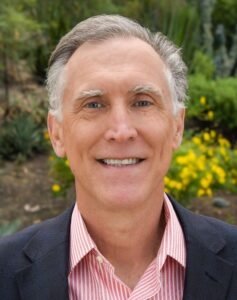Advocating for Earth
Dear Pitzer Community,

When Rachel Carson’s book Silent Spring appeared in 1962, it unleashed a wave of environmental activism. Its publication coincided with the early career of John R. Rodman, who was a young assistant professor at Harvard at the time. When he arrived at
Pitzer a few years later, Rodman was full of the fervor inspired by Carson and others in the environmental awareness movement.
Rodman was one of the prime movers behind Pitzer’s core mission to support and nurture environmental awareness, both on campus and beyond. In this issue of Participant, you’ll find him highlighted in a cover story examining Pitzer’s deep roots in sustainability and environmental awareness.
Today, these terms have become commonplace in higher education, used by many colleges and universities. But they weren’t back when Rodman and his colleagues first started asking everyone to consider what he called, according to a conference he organized in the early 1970s, “the rights of nonhuman nature.”
Even prior to my arrival at Pitzer, I noted that our beloved College has long nurtured consistent core values that the rest of the world seems to be finally embracing now. Pitzer leads the way in multiple areas, including our sustainability and environmental awareness efforts. This magazine issue tells that story beautifully.
Environmental awareness and sustainability efforts are woven across the entire fabric of our campus life. The work we do today challenges us to think not just about cleaning up the skies, seas, and rivers or fighting for local and global sustainability. It’s also about reframing what environmental justice means.
When we strive for environmental justice, we are working on behalf of all living things. When we urge our students to advocate on behalf of communities and vulnerable populations that don’t have a voice of their own, that includes our environment, too. The rich ecosystems surrounding us in Claremont and elsewhere in the world can’t speak for themselves. They need us—and our students and graduates—to speak for them. They need our help.
I think Professor Rodman would be gratified to know his environmental vision is alive and thriving here.
Provida Futuri,
Strom C. Thacker
President
Pitzer College